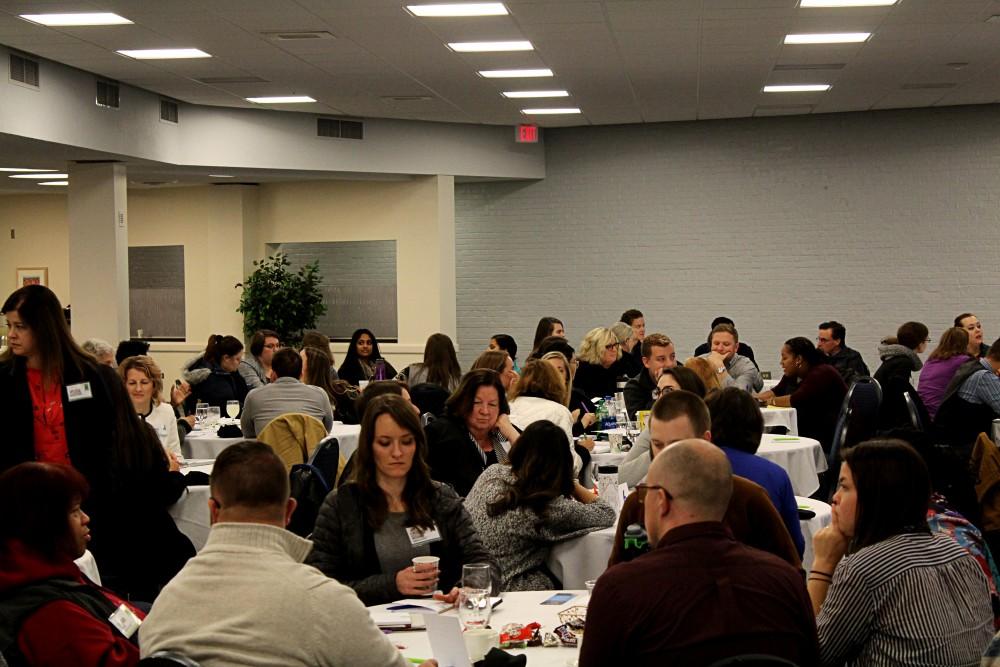GVSU hosts 22nd annual multicultural seminar

GVL / Dan Pacheco
Nov 5, 2018
On Friday, Nov. 2, Grand Valley State University hosted their 22nd Annual Multicultural Seminar in the Kirkhof Center. Each year, the seminar focuses on a different social justice and or diversity issue.
This year, the one-day conference titled “Healing the Trauma of Exploitation,” explored the narratives and neurological development of human trafficking victims in the United States. The event was put on to help create cultures where recovery from trafficking can take place, as well as to provide students and audience members with resources, interventions and warning signs for human trafficking victims in health settings.
“The event covered specific topics such as the connection between a trafficking victim’s behavior and trauma triggers; the impacts of trauma, such as trafficking on the brain and the social and cultural factors that play into exploitation with human trafficking,” GVSU Counseling Center’s Latrece McDaniel said. “It also recognized warning signs in adults and minors, particularly in health settings, and interventions to assist with support and reporting trafficking.”
The seminar was hosted by Andy Soper, an advocate for some of the most vulnerable people in the community, serving as a guide and a teacher for professionals who want to be effective in their approach to traumatized people.
Soper founded the Manasseh Project in 2011, a faith-based and social organization made to help people become aware of the sex trafficking issue, especially in west Michigan. He also opened the first shelter for human trafficking victims in Michigan. After years of being an advocate, he then helped to open headquarters in 2014 – Grand Rapids’ Runaway and Homeless Youth Drop-In-Center.
McDaniel shared that guests were eager to attend the event because Human Trafficking, although everywhere, is particularly prevalent in west Michigan.
“In many communities including west Michigan, people don’t think human trafficking is happening,” McDaniel said. “As indicated on stopthistraffic.org, west Michigan has a number of industries in which exploitation often happens, including the hospitality industry, the agribusiness industry, and its commercial transportation industry. These are all closely connected to numerous regional hubs.”
This seminar was important for students to attend because it both raised awareness to assist with helping and reducing trafficking, challenged myths and assumptions around trafficking and victims of trafficking and assisted students in becoming advocates now and in their future careers.
McDaniel shared that students and community members who missed the event can also get involved around campus to help make a difference locally.
“Some ways to get involved are to support local resources and to connect people with the resources that you have, to examine ways in which people indirectly influence ongoing trafficking, and to get involved in advocating and creating change in your hometown,” McDaniel said.

























